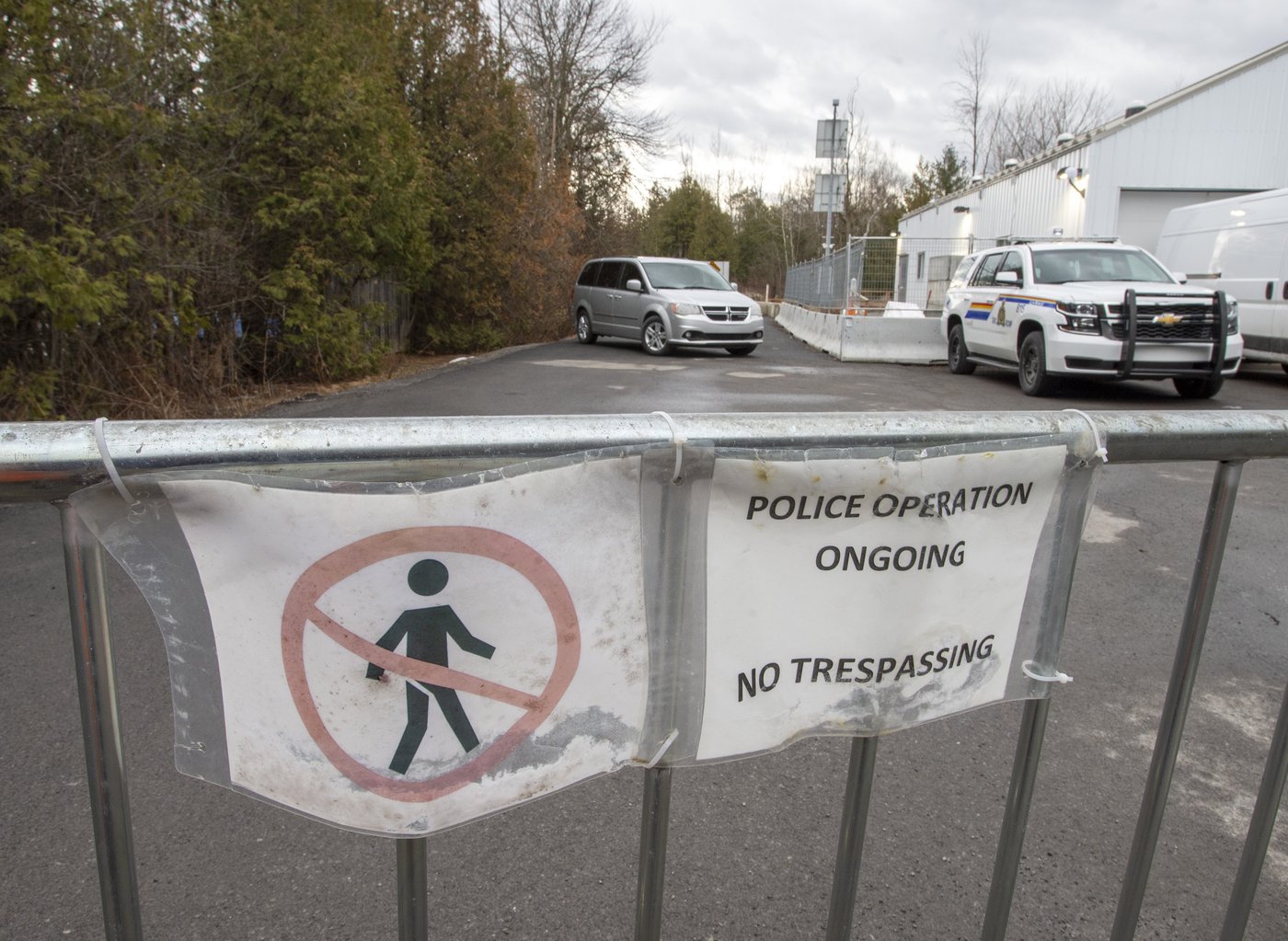A man’s body was found near an unofficial border crossing south of Montreal that is used by thousands of asylum seekers each year to cross into Canada from the United States, Quebec provincial police said Thursday.
The man’s body was found at about 2:45 p.m. on Wednesday in a wooded area in St-Bernard-de-Lacolle, Que., near Roxham Road, police said.
Sûreté du Québec spokesman Louis-Philippe Ruel said U.S. authorities spotted the body during a helicopter patrol.
“While making a flight in the sector, they saw a person on the ground on the Canadian side,” he said. “They contacted Canadian authorities, who called (provincial police), who sent police officers on-site.”
Ruel said police can’t confirm the person’s identity or nationality and do not know whether he had crossed the border from neighbouring New York state, or had intended to cross into the U.S.
He also did not say whether the body showed signs of violence, or give any indication of the cause of death. Police are at the beginning of what could be a lengthy investigation into the causes and circumstances surrounding the death, Ruel added.
The man died as the number of people crossing at Roxham Road to claim asylum in Canada has surged in the past year.
RCMP intercepted 34,478 asylum seekers who did not use official ports of entry to enter Quebec between January and November of 2022, according to Immigration, Refugees and Citizenship Canada. That’s compared to 4,095 interceptions for all of 2021, and 3,189 in 2020, when Roxham Road was mostly shut down because of the COVID-19 pandemic. The checkpoint was reopened in November 2021.
Refugee claimants who enter Canada from the United States at an official border checkpoint are automatically turned back under the Canada-U.S. Safe Third Country Agreement. However, people who enter Canada at non-official points of entry — such as Roxham Road — and file refugee claims are generally allowed to remain in the country pending their hearing dates.
As a result, many seek out irregular crossings such as Roxham Road, where claimants can arrive by car or taxi and walk the few feet across the border.
Quebec Premier François Legault has pressed Ottawa to shut down the unofficial crossing, saying the province doesn’t have the resources to provide for the asylum seekers who are awaiting the outcome of their claims.
The parliamentary secretary for Canada’s immigration minister said in December that the federal government was negotiating with U.S. authorities to modernize the Safe Third Country Agreement.
On Thursday, a spokesperson for federal Public Safety Minister Marco Mendicino said the minister was “saddened” by the death and extended condolences to the man’s loved ones. “We will continue to monitor the situation closely while the police of jurisdiction, Surêté du Quebec, investigates further,” Audrey Champoux said in an email.
Refugee advocates, meanwhile, have urged Canada to scrap or suspend the Safe Third Country Agreement. They say doing so would encourage asylum seekers to present themselves at official border crossings instead of seeking out irregular passages.
While it’s unclear if the man found dead in Quebec was a migrant, people have died trying to cross the Canada-U.S. border before. About one year ago, a family of four from India were found frozen to death near the border in Emerson, Man.
This report by The Canadian Press was first published Jan. 5, 2023.
— With a file from Émilie Bergeron in Ottawa.
